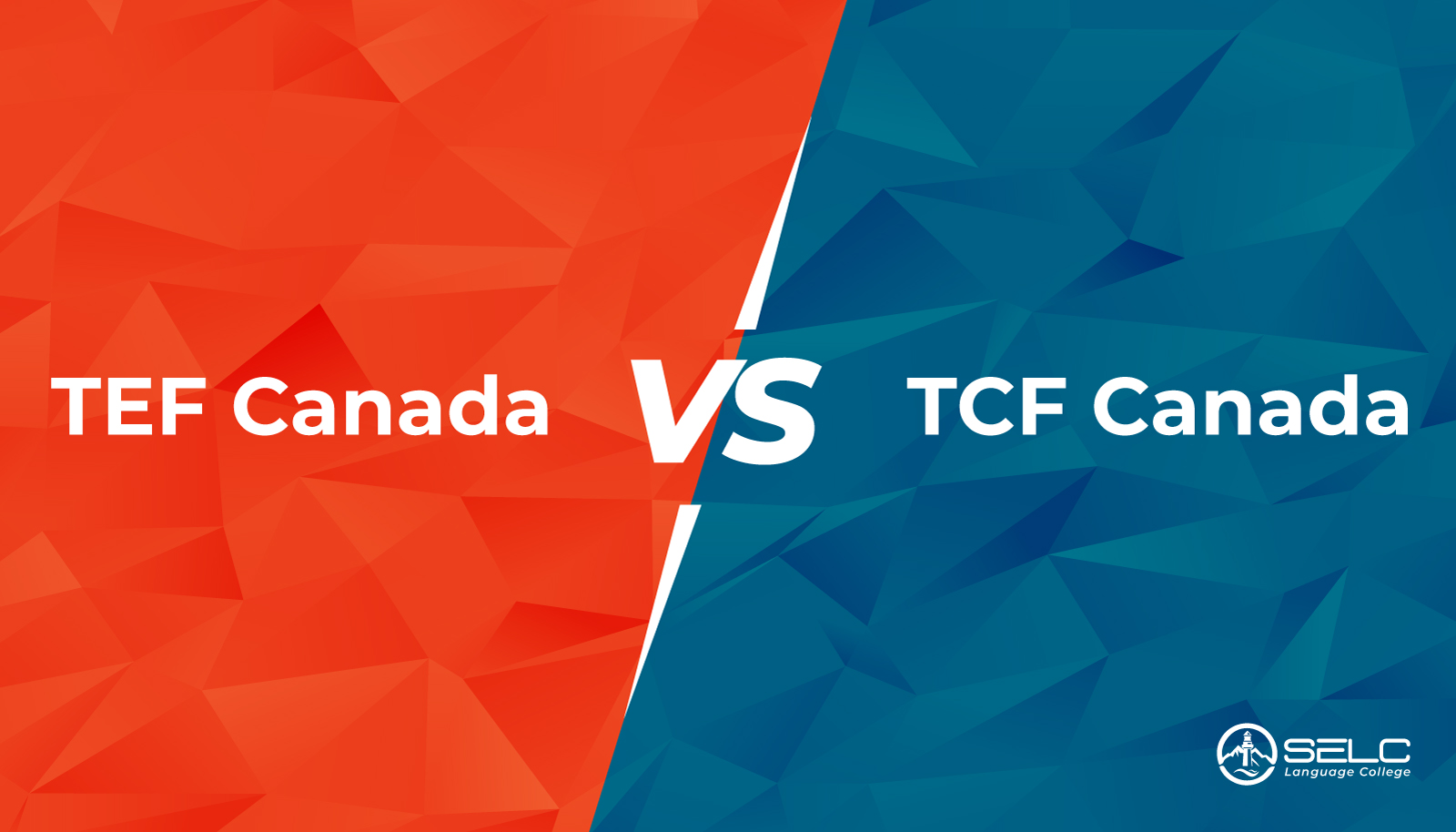TEF Canada and TCF Canada are both IRCC-approved exams, but each has unique formats, timing, and challenges. TEF vs TCF exam…
This is your time to find the answer to make your final decision!
Key Takeaways:
- Understand the main differences between TEF and TCF exams.
- Discover which exam aligns best with your strengths.
- Gain insights into exam structures and scoring systems
What Are TEF Canada and TCF Canada?
Understanding the purpose and structure of TEF Canada and TCF Canada is crucial for anyone aiming to prove their French proficiency for Canadian immigration.
These exams serve as official benchmarks for language skills, recognized by the Canadian government.
Introduction to TEF Canada
TEF Canada, or Test d’évaluation de français, is designed to assess your French language skills in a structured manner.
It evaluates four key areas: reading, listening, writing, and speaking.
The test is suitable for those seeking to immigrate to Canada, as it helps meet the language requirements for Express Entry and other immigration pathways.
TEF Canada is recognized for its comprehensive nature, making it a reliable option for language certification.
Learn More: TEF Canada – Everything You Must Know in 2025

| Feature | TEF Canada | TCF Canada |
|---|---|---|
| Recognition | Approved by IRCC | Approved by IRCC |
| Validity | 2 years | 2 years |
| Required Level | NCLC 7 or higher (CLB 7 equivalent) | NCLC 7 or higher (CLB 7 equivalent) |
| Sections | Reading, Listening, Writing, Speaking | Reading, Listening, Writing, Speaking |
| Scoring | Different scales but same goal: NCLC 7+ | Different scales but same goal: NCLC 7+ |
| Sectional Retake | Not allowed | Not allowed |
Introduction to TCF Canada
TCF Canada, or Test de connaissance du français, also measures French language proficiency through similar sections: reading, listening, writing, and speaking.
The TCF Canada exam is tailored for those who need to demonstrate their French abilities for Canadian immigration purposes.
It provides a structured assessment that aligns with the needs of individuals applying for permanent residency or citizenship.
Both TEF and TCF Canada offer valuable certification, but understanding their unique structures will guide you in selecting the right exam for your goals.
What Are the Key Features of TEF vs TCF?
When considering the TEF and TCF exams for Canadian immigration, it’s crucial to understand their unique features.
Both exams are essential for proving French language proficiency, but they have distinct characteristics that may influence your choice.
Recognition and Validity
Both the TEF and TCF exams are recognized by the IRCC, which stands for Immigration, Refugees and Citizenship Canada.
This recognition is vital as it ensures that the exams meet the standards required for Canadian immigration purposes.
The validity of both exams is two years, meaning you must use your results within this timeframe for them to be accepted by immigration authorities.
This period gives you a window to apply for various immigration programs, such as Express Entry or permanent residency in Canada.
Required Proficiency Levels
The proficiency levels required for both TEF and TCF are aligned with the NCLC, which is the Canadian Language Benchmarks.
You need to achieve at least an NCLC 7, which is equivalent to a CLB 7, to meet the language requirements for most immigration programs.
This level indicates that you have an intermediate to advanced understanding of French, which is necessary for effective communication in Canada.
Exam Structure and Scoring
The structure of the TEF and TCF exams includes four key sections: Reading, Listening, Writing, and Speaking.
These sections are designed to assess your comprehensive French language skills.
However, it’s important to note that neither exam allows for sectional retakes.
This means if you do not achieve the desired score in one section, you must retake the entire exam.
Understanding this can help you prepare more effectively and focus on strengthening all areas of your language proficiency.
What Are the Similarities Between TEF and TCF?
Finding similarities among TEF and TCF exams is necessary to find out first their similarities before discovering their differences.
Knowing these similarities can sharpen your study plan:
You can recycle study material used to prepare for general French ability and apply it to both exams.
You can have a confident approach: whatever exam you take, the underlying linguistic skills you acquire will serve you equally well.
You can better plan your preparation, learning to excel in general skill sets rather than worrying about fundamental exam format variations.
Both tests share the same fundamental purpose: they are official French language proficiency tests that are recognized by IRCC (Immigration, Refugees and Citizenship Canada) for programs such as Express Entry and Permanent Residency.
1- Language Proficiency Levels Assessed
Both TEF and TCF seek to test a full range of language proficiency, from basic user (A1) to proficient user (C2) of the Common European Framework of Reference for Languages (CEFR) scale.
That is, regardless of whether you’re beginning from scratch in French or are already proficient, both tests will assess how well you’re able to:
- Understand everyday expressions
- Communicate in the workplace
- Understand complex written and spoken information
- Express nuanced arguments
Attaining an NCLC 7 (Canadian Language Benchmark 7) — normally equivalent to a B2 level — is required to obtain additional immigration points.
2- Exam Sections
Both exams share an identical four-skill structure:
| Skill | Focus |
|---|---|
| Reading (Compréhension écrite) | Understanding written texts |
| Listening (Compréhension orale) | Comprehending spoken French |
| Writing (Expression écrite) | Producing coherent and structured written responses |
| Speaking (Expression orale) | Expressing ideas clearly in oral communication |
Each section is carefully designed to evaluate your ability to function effectively in real-world and professional contexts not just academic or textbook French.
3- General Testing Features
There are several significant similarities to their testing experience:
Standard French Usage:
The two tests both depend significantly on standard French usage, although candidates are to anticipate acquaintance with other accents, including Canadian French, Parisian French, and African Francophone speech. This indicates the richness in linguistic variation within the Francophone world.
No Negative Marking:
No marks are given to incorrect answers on either the TEF or the TCF.
This is a strategic advantage: guessing is better than leaving questions blank, and you should attempt every question without regard to losing points.
Partial Exam Required for Scoring:
Partial scores from a single section cannot be used separately. You are required to attempt all four sections to generate a valid results certificate acceptable to IRCC.
Both TEF Canada and TCF Canada test results are valid for two years from the date of issue, which aligns with application and immigration processing times.
What Are the Key Differences in TEF and TCF Sections?
When choosing between the TEF and TCF exams, understanding their section differences is crucial.
Each exam has unique formats and challenges, which can impact your test experience and results.
| Section | TEF Canada | TCF Canada |
|---|---|---|
| Reading (Compréhension écrite) | 40 questions in 60 minutes; some passages used for 2 questions (more efficient) | 39 questions in 60 minutes; each passage tied to a single question (more reading workload) |
| Listening (Compréhension orale) | 40 questions in 40 minutes; questions visible before and during audio playback | 39 questions in 35 minutes; questions appear only after audio playback |
| Writing (Expression écrite) | 2 tasks (story continuation and argumentative essay); fixed time per task (25 min + 35 min) | 3 tasks (informal writing, formal letter, opinion essay); flexible time management within 60 minutes |
| Speaking (Expression orale) | 2 tasks (formal conversation + convincing a friend); 1-minute prep for the first task | 3 tasks (self-introduction, conversation for information, monologue); flexible, everyday topics |
| Difficulty Level (General) | Slightly harder creative demands (especially writing and speaking); more rigid timing | Slightly easier practical topics; more freedom in timing and task approach |
| Preparation Before Listening | Allowed (time to read questions/options) | Not allowed (audio first, then question shown) |
| Time Pressure | Strict section switching (especially in writing) | Manage your own time between writing tasks |
| Resource Availability | Good availability (especially post-2023 updates) | Good availability (growing steadily) |
| Exam Pattern Stability | Recent pattern change (2023) — increased difficulty | Relatively stable pattern |
| Best Fit For | Candidates good at creativity under pressure and structured exams | Candidates good at time management and practical communication |
Reading Section Comparison
The reading section of TEF and TCF exams differs in format and timing.
In the TEF exam, you will find 40 questions to answer in 60 minutes, with multiple questions linked to one passage.
This format can save you time since you can focus on fewer passages.
On the other hand, the TCF exam has 39 questions in 60 minutes, with each question tied to a different passage.
This difference means that the TCF might feel slower, as you need to read a new passage for each question.
Listening Section Comparison
In the listening section, the TEF and TCF exams also have distinct approaches.
The TEF allows you to see questions before and during the audio, offering a chance to anticipate the content.
This feature can make it easier for those who like to prepare mentally.
Conversely, the TCF requires you to listen to the audio first and then see the question, which demands stronger listening skills.
This structure can be more challenging for those who struggle with pure audio comprehension.
Writing and Speaking Sections
The writing and speaking sections of the TEF and TCF exams present different task types and creative demands.
In the TEF writing section, you will face two tasks: continuing a story and writing an argumentative essay.
These tasks require creativity and adherence to fixed timing.
In contrast, the TCF includes three tasks, such as informal writing and formal letters, allowing flexible time management.
For speaking, the TEF involves a formal conversation and a role-play task, which can be creatively demanding.
Meanwhile, the TCF has a three-stage process with more structured and everyday topics, making it easier for some candidates.
Understanding these differences helps you choose the exam that aligns with your skills and preferences.
Which Exam is Easier: TEF or TCF?
Choosing between the TEF and TCF exams can be tough. Both exams are important for proving your French skills for Canadian immigration. Let’s explore which might be easier for you.
Reading and Listening Ease
The TEF exam uses passages more than once, making reading a bit simpler. You can focus on understanding one passage for several questions. In the listening section, TEF lets you see questions before and during the audio. This can help you prepare your mind for what you’re about to hear.
On the other hand, the TCF exam provides a new passage for each question. This means more reading, which can slow you down. For listening, TCF shows questions only after you’ve heard the audio. This setup demands stronger listening skills, which some find harder.
Writing and Speaking Challenges
Writing in the TEF exam requires creativity. You might need to continue a story or write an essay, and the timing is strict.
This can be challenging if you struggle with creative tasks. The speaking section also involves roleplay, which requires convincing someone in a scenario.
In contrast, TCF writing tasks are more practical. You might write an informal letter or a formal essay.
The timing is flexible, allowing you to manage your time across tasks. Speaking in TCF involves more everyday topics, which some find easier to handle.
Overall Difficulty Insight
| Category | TEF Canada | TCF Canada |
|---|---|---|
| Reading | Slightly easier (due to passage reuse) | Slightly harder (new passage for each question) |
| Listening | Easier (questions visible before listening) | Harder (questions only after audio) |
| Writing | Harder (more creativity needed, rigid timing) | Easier (flexible timing, relatable topics) |
| Speaking | Slightly harder (roleplay convincing) | Slightly easier (structured monologue topics) |
If you are good at structured tasks, TCF might suit you better. The exam’s practical writing topics and everyday speaking themes can be less daunting.
However, if you thrive under pressure and enjoy creative writing, the TEF could be your match. Consider your strengths and weaknesses to choose the best fit for your skills.
What Practical Considerations Should You Keep in Mind?
Preparing for the TEF and TCF exams requires understanding some practical considerations.
These include the availability of test dates, associated costs, and the resources needed for preparation.
Let’s explore these factors to help you plan effectively.
Test Availability and Costs
Both TEF and TCF exams have different schedules depending on the testing centre.
It’s essential to check the availability of test dates well in advance to secure a spot that fits your timeline.
Fees can vary slightly by location, so be sure to confirm the cost with your chosen centre.
Planning ahead ensures you won’t face last-minute surprises.
Must Read: 7 TEF Canada Tips to Pass the Exam

Resources and Preparation Materials
When it comes to resources, you’re in luck.
There are ample free and paid options available for both TEF and TCF exams.
These resources range from practice tests to study guides that can help you prepare thoroughly.
Investing time in these materials can boost your confidence and performance on test day.
Recent Exam Pattern Updates
Staying informed about recent exam pattern updates is crucial.
The TEF exam has seen an increase in difficulty following updates in late 2023.
Meanwhile, the TCF format has remained relatively stable.
Keeping up-to-date with these changes can help you tailor your preparation strategy effectively.
Understanding these practical aspects will set you on the right path to success in your TEF or TCF journey.
How to Choose the Best Exam for You?
Choosing between the TEF and TCF exams for Canadian immigration can be tough. It’s crucial to pick the one that aligns with your strengths and preferences. Let’s explore how to make the best choice for you.
Time Management Preferences
Do you like structured or flexible timing? If you prefer a structured approach, TEF might suit you better.
It has fixed times for each task. On the other hand, TCF offers more flexibility, allowing you to manage your time across tasks. This can be great if you like pacing yourself.
Personal Strengths and Weaknesses
Are you more creative or do you prefer structured tasks? TEF tends to demand more creativity, especially in writing. If you excel in creative writing, TEF might be your match.
TCF, however, focuses on more structured tasks. It’s ideal if you prefer clear, practical assignments.
Exam Format Suitability
Does the exam format match your skills? TEF involves tasks that might require quick thinking and creativity. If you’re good under pressure, this could work for you. TCF offers a more predictable format with relatable topics. This suits those who like a steady pace and familiar content.
Wrap Up on TEF vs TCF Canada Exams
Ultimately, choosing between TEF and TCF depends on your personal style and strengths. Consider how you manage time, your creative abilities, and which format feels more comfortable.
This will guide you to the exam that best fits your needs for Canadian immigration.
Choosing between the TEF and TCF exams depends on your goals and strengths. Both tests assess French skills for Canadian immigration, with unique features and structures.
TEF and TCF have similar language levels, but differ in section formats and scoring. Consider your comfort with reading, listening, writing, and speaking tasks.
Evaluate test availability, costs, and preparation resources. Reflect on your time management and task preferences. This will guide you to the best exam for your needs.
Understanding these factors will help you make an informed decision for your future in Canada.






0 Comments